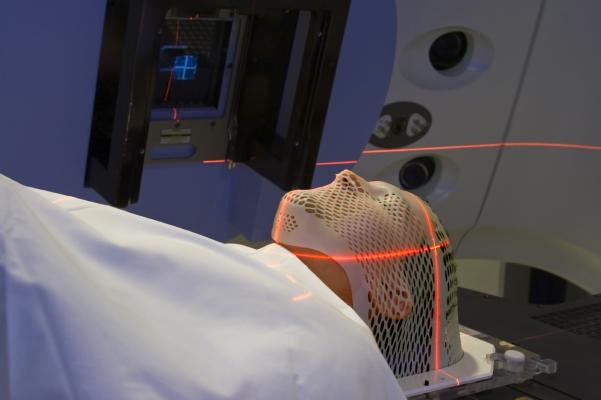
May 12, 2016 — Researchers in the United Kingdom have successfully shown for the first time that breast cancer patients can be trained to achieve single prolonged breath-holds of over five minutes. These findings open the door for targeted radiotherapy to be administered with just one dose in each daily session.
A typical radiotherapy beam in each daily session takes two minutes to deliver, with shaped radiation beams directed from several angles to intersect at the cancerous tumor. Because patients are not able to hold their breath for this long, most radiotherapy treatment is delivered while still breathing, and the ventilatory motion of the chest increases the risk of damage to nearby healthy tissue.
Clinical practice for some breast cancer patients is due to change with the introduction of repeated breath-holds of around 20 seconds, to provide a stable target for the treatment, given over a number of doses in each session.
But the Birmingham team have demonstrated that the treatment in each session could now be delivered to patients in a single breath-hold.
The research “Safely prolonging single breath-holds to >5 minutes in cancer patients; feasibility and applications for radiotherapy“ published in the British Journal of Radiology, builds on previous studies of healthy volunteers who were able to reach mean breath holds of seven minutes.
Dr. Mike Parkes, from the University of Birmingham, explained, “The physiology of breath holding is well understood on the whole, but has been somewhat overlooked in medical research because until now it hadn’t any obvious clinical application.”
“Following on from our preliminary work on healthy subjects, we wanted to see if we could help patients with breast cancer to achieve a breath hold of over two minutes to allow a radiotherapy treatment to be delivered in a single breath-hold.”
Fifteen patients who were undergoing radiotherapy were recruited to the trial and trained to extend their breath-holds safely. Patients are trained on how to maintain a relaxed posture, to practice inhaling and exhaling to maximum effect and then to assist them naturally to raise their blood oxygen levels and reduce their blood carbon dioxide levels, by preoxygenation and mechanically induced hypocapnia.
The average breath hold of patients after the training was 5.3 minutes, significantly more than the required target of 2 minutes.
Parkes continued, “Being able to hit the cancerous tumor accurately is essential to avoid damage to other areas, including the heart muscle. Having a stable chest that we can target in one dose could be invaluable in protecting the surrounding tissue.”
“Although 5-minute breath-holds may seem astonishing to people, it is perfectly natural and safe for patients. Actually, anyone can do it. Patients are carefully monitored throughout the process and if their oxygen levels drop or their blood pressure rises above a certain level we would step in. The safety levels we use are very conservative so there is no risk attached.”
Of all 15 patients undergoing radiotherapy, 13 also had chemotherapy and two were taking herceptin.
The Birmingham team, working with clinical teams at University Hospitals Birmingham NHS Foundation Trust, believe that being able to assist patients in achieving a single breath-hold could greatly improve the long-term survival and quality of life of breast cancer patients.
The trial was funded by the Queen Elizabeth Hospital Birmingham Charity as part of the Charity’s ongoing multi-million pound support of patients at the hospital.
For more information: www.birpublications.org/journal/bjr


 February 06, 2026
February 06, 2026 









